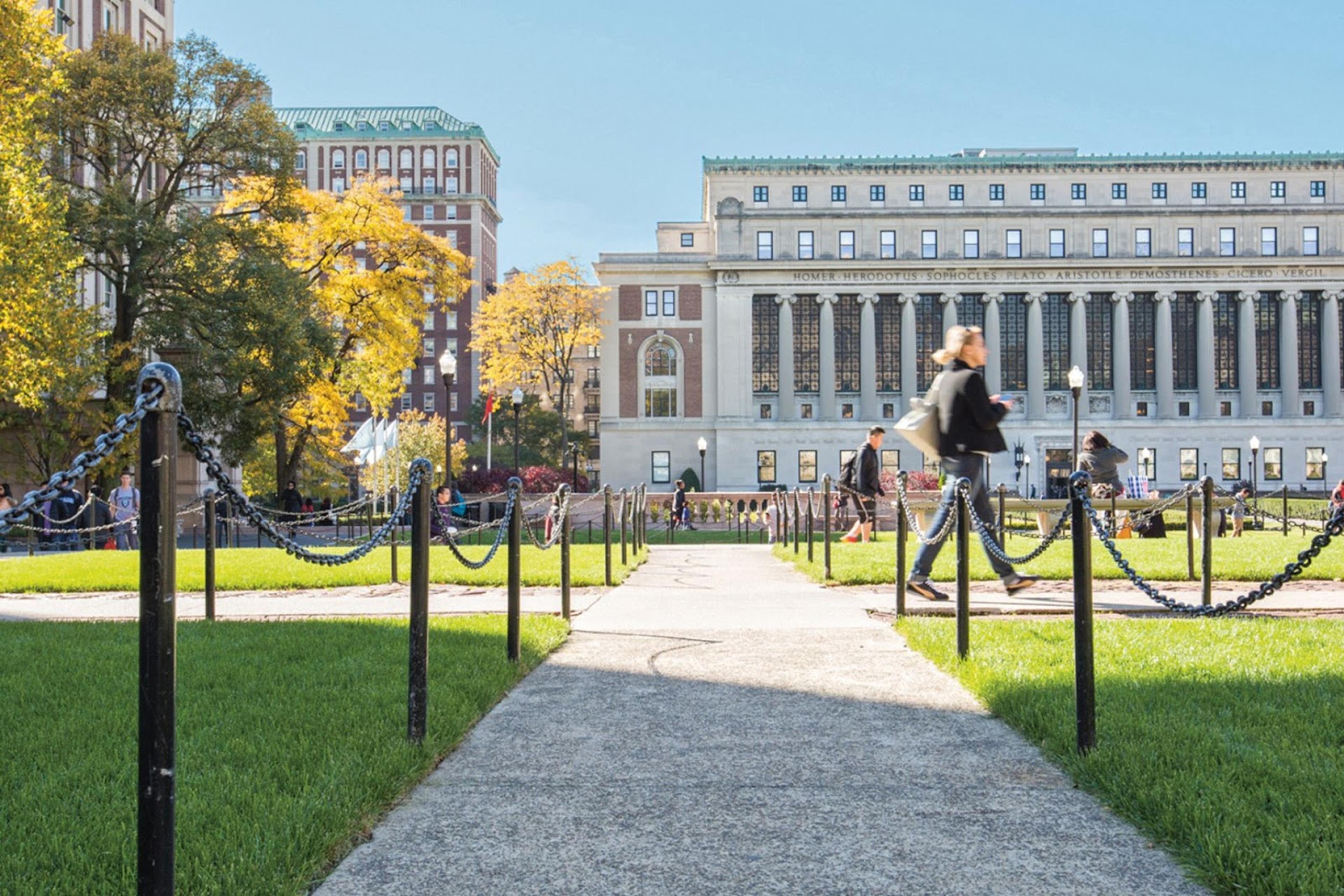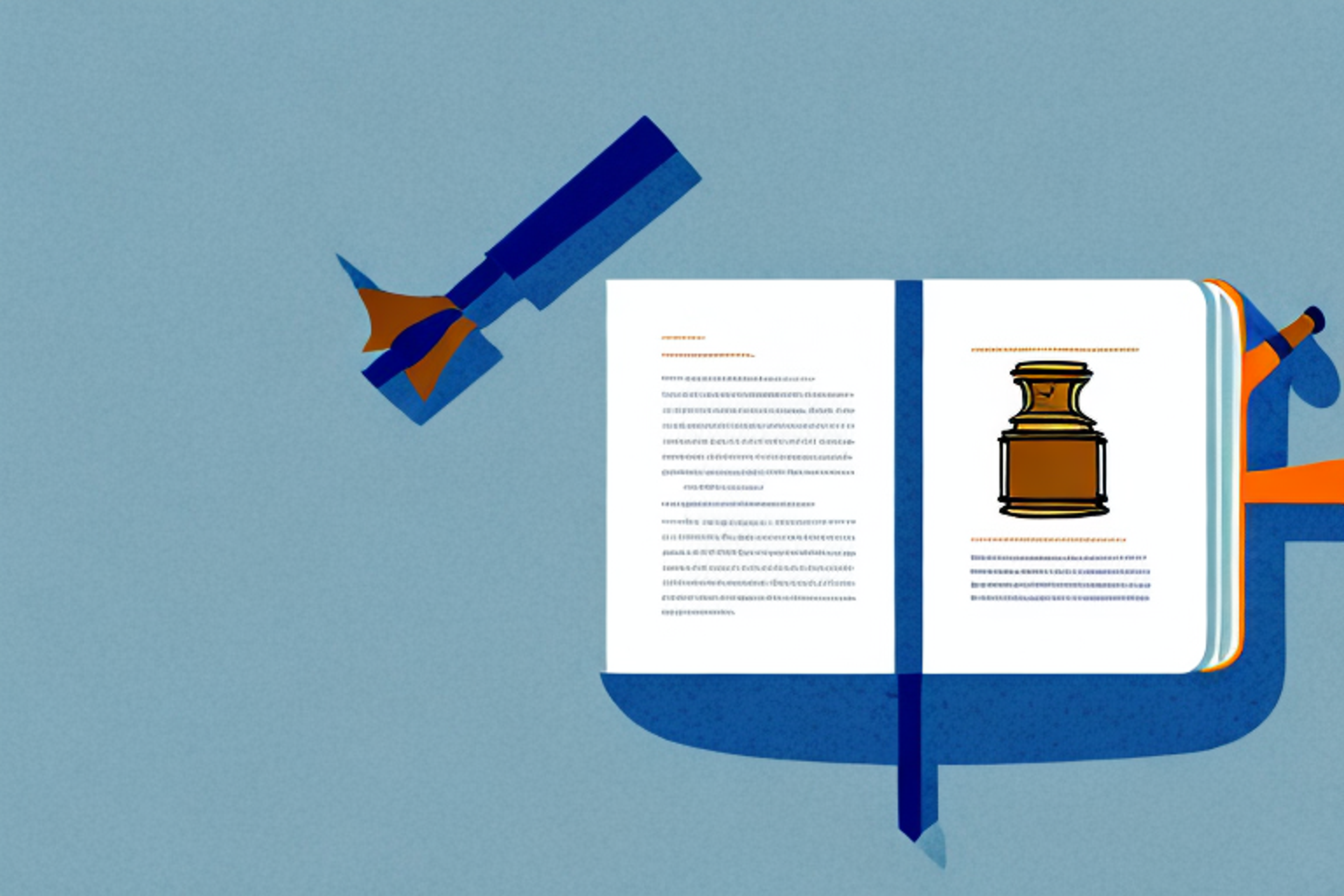Columbia Law Personal Statement Guide: Examples & Admit Tips
Learn exactly how to format, structure, and write a standout Columbia Law personal statement with tips to avoid common mistakes and impress admissions.
Posted August 26, 2025

Join a free event
Learn from top coaches and industry experts in live, interactive sessions you can join for free.
Table of Contents
Applying to Columbia Law School means competing with thousands of talented law school applicants from around the world. While your LSAT score, GPA, and other application materials matter, your personal statement often carries the most weight. This is where you show the admissions committee who you are beyond your test scores and transcripts and why you should join Columbia’s incoming class.
Unlike other schools, Columbia Law requires applicants to address how its legal education specifically supports their goals. This makes the Columbia Law personal statement unique compared to most law school personal statement prompts. It’s not just about telling a story—it’s about showing why you want to attend Columbia Law School, what you will contribute, and how the program aligns with your career goals.
Read: How to Write a Powerful Personal Statement for Your Law School Applications
Why the Columbia Law Personal Statement Is Different
For many law school applicants, writing a law school personal statement can feel daunting. Columbia makes it even more unique by requiring a “Why Columbia” component. As one Reddit user put it:
“I think most people use their regular personal statement and just add a few sentences near the end about Columbia… but if you do it with substance, they’ll notice.”
This means your essay cannot be a generic narrative. You must show how Columbia’s program, faculty, and clinics align with your long-term plan. Another Redditor explained:
“They like to see a why Columbia statement in the personal statement. Not like a whole thing, but just something about why you like Columbia.”
The takeaway? Columbia isn’t testing whether you can write an essay; it’s testing whether you’ve thought deeply about where you want to pursue your legal education and how you’ll use it to create meaningful change in the legal profession.
Read: How to Get Into Law School: Advice From an Expert
Columbia Law School Personal Statement Requirements
Here’s what the Columbia Law School essays involve:
- Length: Your statement should be approximately two pages, double-spaced, with a reasonable word count (usually 600–800). While some applicants go slightly over two pages, concision is valued.
- Format: Use standard font and spacing, with clear body paragraphs that flow logically.
- Content: A personal story that highlights your personal experiences, motivations, and goals, while also showing how Columbia specifically fits your plan.
- Supplementals: You may submit a diversity statement, an optional but powerful way to highlight aspects of your background that enrich the school and its students.
Expert tip: Respect the format. Columbia admissions officers read thousands of statements each cycle. A well-structured, professional document shows attention to detail and maturity.
Columbia Law Personal Statement Format
One of the most common mistakes applicants make is underestimating the importance of format. While content carries the most weight, how you present your Columbia Law School personal statement is a subtle but powerful signal to the admissions committee about your professionalism and attention to detail. Columbia doesn’t require elaborate formatting, but they do expect you to follow certain conventions.
| Section | Key Guidelines |
|---|---|
| Length and Spacing | Your personal statement should be approximately two pages, double-spaced, using a standard font such as Times New Roman or Arial in 11- or 12-point size. Most strong statements fall between 600 and 800 words, and while Columbia doesn’t set a strict word count, staying within the two-page limit is important. |
| Structure and Flow | The essay should read as a cohesive narrative with clear body paragraphs. Begin with a personal story that introduces your motivation, continue with experiences that prepared you for law school, and end with a conclusion that ties your goals directly to Columbia. |
| Professional Presentation | Keep the formatting simple and clean. Use consistent margins, a readable font, and standard paragraph breaks. Avoid decorative elements like unusual fonts or colors, as your focus should be on clarity and professionalism. |
| Timeline for Drafting | Give yourself several weeks to draft and revise the essay. Seek feedback from mentors or coaches and allow time for thorough proofreading before submission. |
| Optional Additions | If you choose to include a diversity statement or addendum, follow the same formatting guidelines. These should also be double-spaced and ideally under two pages. Treat them with the same level of care as your main personal statement. |
Read: Law School Personal Statement Format & Length: Guide & Tips
How to Write the Columbia Law Personal Statement
Begin With a Story That Only You Could Tell
The strongest Columbia Law personal statements don’t open with résumé highlights or generic lines about wanting to be a lawyer. They begin with a defining moment that shows the reader who you are and why you care about the legal profession. That story might be an academic spark in freshman year, an internship during sophomore year, or a moment of volunteer work where you saw the legal system up close. What matters is that it reveals something only you could write, something that makes the admissions committee lean in and remember your voice.
Expert tip: Columbia values specificity. If your story could appear in any other applicant’s essay, it’s too generic.
Show the Journey, Not Just the Destination
After drawing the reader in, you need to map how your path led you here. Columbia wants to admit applicants who are not only passionate but also prepared for the rigors of law school. This is your chance to show the arc of your development. Perhaps your research projects taught you to analyze problems in depth, or your leadership in college gave you the confidence to advocate for others. Maybe professional roles over the past few years gave you insight into how the legal field operates. Whatever your path, connect the dots so it’s clear how these experiences helped prepare you for attending law school and taking on the demands of a top-tier legal education.
Expert tip: Don’t just list experiences. Instead, highlight how each one helped prepare you for Columbia specifically.
Make Columbia Impossible to Ignore
Here’s where many applicants fall short. Reddit users often admit they reused a generic essay and tossed in “Why Columbia” at the very end. But the admissions officers can spot that instantly. To stand out, weave Columbia into your story from the start. If your interests are in public and international affairs, connect them to the Human Rights Institute. If you thrive in interdisciplinary studies, show how you’d collaborate with SIPA or other corners of the university. If you care about reforming the justice system or strengthening the legal system, point directly to Columbia’s clinics and pro bono work. The more naturally you integrate Columbia’s resources into your essay, the more convincing your case will be that you belong in this school.
Expert tip: Use Columbia’s language. If a clinic, journal, or initiative excites you, mention it by name and explain why. That level of detail signals genuine interest and shows you’ve done your homework.
Treat the Format as Part of the Argument
Even brilliant ideas can fall flat if the delivery isn’t polished. Columbia is clear: your personal statement should be two pages, double-spaced, with a professional flow and clear body paragraphs. Think of the structure as proof that you can communicate like a lawyer—organized, concise, and persuasive. Give yourself a few weeks to brainstorm, draft, and edit so your voice comes through with clarity. Share it and receive feedback from mentors, professors, or coaches; revision is where most strong essays become exceptional. Remember, the Columbia Law acceptance rate is highly competitive. No statement can guarantee admission, but the right mix of storytelling, strategy, and polish can put you in the best possible position for the incoming class.
Expert tip: Remember that the Columbia Law acceptance rate is among the most competitive in the country. A technically perfect, strategically tailored essay won’t guarantee admission, but it dramatically strengthens your odds.
Columbia Law School Personal Statement Examples With Expert Insights
Example #1 (Immigration & Advocacy)
The first time I entered a courtroom, it wasn’t as an aspiring lawyer but as a translator for my parents. I was a nervous high schooler, interpreting legal jargon in a housing dispute. Watching the judge rule in our favor showed me the profound power of the law. Later, I joined a tenants’ rights clinic and volunteered in immigrant communities. These experiences gave me confidence in my bilingual skills, deepened my commitment to advocacy, and convinced me that I want to pursue immigration law. At Columbia, I hope to join the Immigrants’ Rights Clinic and develop the tools to advocate for those navigating the legal system.
Why this works:
- Starts with a vivid personal story.
- Demonstrates growth over the past few years.
- Explicitly connects goals to Columbia’s resources.
- Shows strong passion for advocacy and readiness for law school.
Example #2 (International Law & Leadership)
Joining my high school mock trial team was my first exposure to advocacy, but my real awakening came during college when I joined the International Law Society. Through lectures, research projects, and conference planning, I discovered how law fosters cooperation across borders. By my senior year, I was Vice President of the society, where I organized panels with scholars from around the world. I also interned at a firm that specialized in international arbitration, where I gained practical skills in research and case analysis. At Columbia, with its unmatched offerings in international affairs, I am eager to join journals and moot court competitions to refine my abilities and prepare for a career in global law.
Why this works:
- Links leadership roles to professional goals.
- Highlights school personal statement example structure: clear arc, motivation, and Columbia fit.
- Aligns directly with Columbia’s international strengths.
Example #3 (Paralegal to Law Student)
Becoming a paralegal wasn’t my initial plan, but it became the most transformative. Working at a criminal defense firm exposed me to the legal field, from research and brief writing to client interactions. I saw how the legal profession balances responsibility and advocacy. I also attended a conference on legal education for refugees, which sparked my interest in systemic reform. Mentorship from senior attorneys solidified my commitment to pursue law. Columbia’s focus on interdisciplinary studies and experiential learning, especially in criminal law clinics, aligns perfectly with my goals of reforming the justice system.
Why this works:
- Turns an unexpected path into a strength.
- Highlights how professional experiences helped prepare the applicant.
- Connects directly to Columbia’s clinics and programs.
Common Mistakes to Avoid
One of the quickest ways to weaken your Columbia Law personal statement is by making mistakes that signal to the admissions committee you haven’t thought strategically about your essay. Columbia is reviewing thousands of applications, and these missteps are more common than you’d think. Here’s how to avoid them—and why they matter.
Turning Your Essay Into a Laundry List
Many applicants try to cram every achievement since freshman year into their essay, believing that more accomplishments will impress the reader. In reality, this approach dilutes your story. The personal statement is not a résumé; it’s a chance to highlight one or two personal experiences that define your path. Focus on depth, not breadth. Admissions officers consistently say they’d rather see one moment unpacked thoughtfully than ten accomplishments skimmed over.
Rehashing Your Application Materials
Another mistake is treating the essay as a copy-and-paste version of your résumé or application materials. The committee already has your LSAT score, transcripts, and recommendation letters. What they don’t have is insight into who you are as a person and how your lived experiences shaped your decision to pursue law. If your essay reads like a summary of credentials, you’ve missed the point. Use the space to reveal your motivations, values, and vision for your place in the legal profession.
Writing Without a Columbia Lens
A generic “why law” statement might work at other schools, but at Columbia, it’s a missed opportunity. Reddit applicants admit they sometimes just tack on the school name in the last paragraph, but this is exactly what makes an essay forgettable. Columbia expects you to connect your goals to its clinics, faculty, or culture. An essay without a Columbia-specific angle suggests you haven’t done your research—or worse, that you’re recycling the same statement for multiple schools. If you want to attend Columbia Law School, you have to make that connection clear.
Overlooking the Diversity Statement
Far too many applicants ignore the optional diversity statement. For Columbia, this is a powerful way to highlight aspects of your background, perspective, or identity that might not appear elsewhere. Whether it’s your cultural heritage, professional path, or unique community involvement, the diversity statement helps the admissions committee understand how you’ll enrich the incoming class. Passing on this option when it applies to you is essentially leaving points off the table.
Waiting Until the Last Minute
Strong essays take time. Many applicants underestimate the drafting process and try to finish their statement in a weekend. The result is usually generic and underdeveloped. Most experts recommend giving yourself at least 6–8 weeks to brainstorm, draft, and revise. This extra time allows you to refine your narrative, cut clichés, and integrate Columbia-specific details seamlessly. Use the time wisely: map out your plan, set milestones, and don’t be afraid to receive feedback from mentors or coaches. Your final thoughts should reflect a polished narrative, not a rushed draft.
Additional Application Considerations
- Early Decision - Columbia offers early decision with a binding commitment, appealing to applicants who want to put their best foot forward early.
- Columbia Law Acceptance Rate - With an acceptance rate hovering around 11–15%, competition is fierce. A polished statement can tip the scales.
- Video Interview - Columbia may invite candidates to complete a video interview, which tests communication skills beyond the essay.
- Educational Records & Test Scores - Columbia reviews the full set of application materials, including educational records, LSAT scores, and recommendation letters.
- Incoming Class Diversity: Submitting a strong diversity statement helps demonstrate how you’ll contribute to Columbia’s inclusive university environment.
Final Thoughts
Your Columbia Law School personal statement is the bridge between your achievements and your ambitions. It’s your chance to prove to the admissions committee that you not only belong in the school but also have the potential to thrive in the legal profession.
As applicants note, you don’t have to reinvent your essay, but you do have to make Columbia-specific connections. Done right, your application will come full circle: from your personal experiences to your long-term goals, Columbia becomes the natural choice.
Take the time to write, revise, and refine over a few weeks. Seek mentors, gather the following materials, like recommendation letters, and put your best foot forward. With focus and effort, your statement can do an excellent job of setting you apart and helping you achieve your dream of attending Columbia Law School.
Get Expert Guidance From Top Law School Admissions Consultants
If you want expert eyes on your personal statement before you hit submit, consider working with a top law school admissions coach who’s helped applicants get into Columbia and other T14 law schools. They can help you clarify your story, strengthen your structure, and make sure your essay truly reflects your potential.
Also, check out our law school application bootcamp and free events and group classes for more effective strategies!
See: The 10 Best Law School Coaches | Law School Admissions Consulting That Works
Read these next:
- Harvard Law Personal Statement Guide: Examples & Admit Tips
- Northwestern Law Personal Statement Guide — Examples & Admit Tips
- NYU Law Personal Statement Guide: Examples & Admit Tips
- Stanford Law Personal Statement Guide: Examples & Admit Tips
- Law School Application Deadlines (T20 Programs)
- LSAC Credential Assembly Service (CAS): What it Is and How It Works for Law School Applications
FAQs: Columbia Law Personal Statement
How long should my Columbia Law personal statement be?
- Columbia recommends about two pages, double-spaced, using a standard font like Times New Roman or Arial at 11 or 12 points. While they don’t give a strict word count, most strong statements fall in the 600–800-word range. Going over the limit even by a paragraph can signal that you don’t follow instructions, so it’s best to stick to two pages.
What should I write about in my Columbia Law personal statement?
- Focus on a personal story or experience that shaped your decision to pursue law. Columbia wants to see clarity of motivation, intellectual readiness, and why their program fits your goals. The best statements are reflective, specific, and show growth over time—not just a résumé in paragraph form.
Does Columbia Law care about formatting for the personal statement?
- Yes, presentation matters. Clean formatting, readable fonts, and consistent spacing signal professionalism. Don’t use flashy fonts or try to “stand out” with design. Admissions officers care more about your writing, but poor formatting can distract or leave a bad impression.
Can I reuse my personal statement from another law school?
- You can use a similar base, but make sure to tailor your essay specifically to Columbia. Mention programs, clinics, faculty, or aspects of the school that genuinely align with your goals. Admissions can tell when an essay is generic, and it’s a missed opportunity to show why Columbia is the right fit for you.
Should I submit an optional diversity statement, too?
- If you have a perspective, experience, or aspect of your identity that adds to the diversity of the Columbia Law community, it’s worth including. Even though it’s optional, it helps the admissions team understand the full context of who you are and how you’ll contribute. Just be sure to keep it professional, well-written, and concise. Ideally under two pages.
























